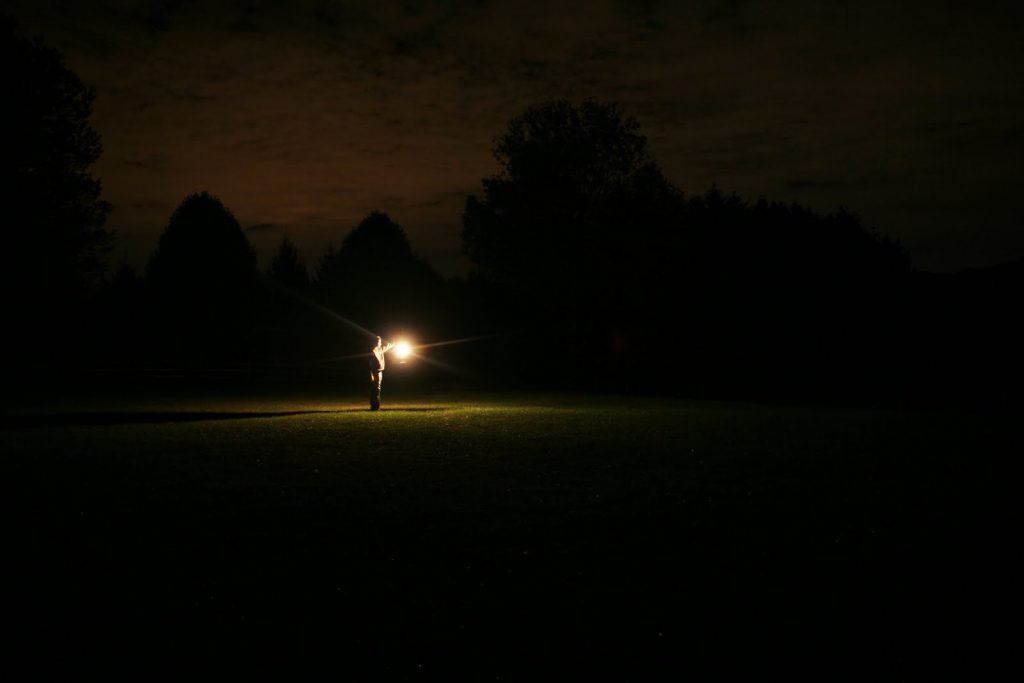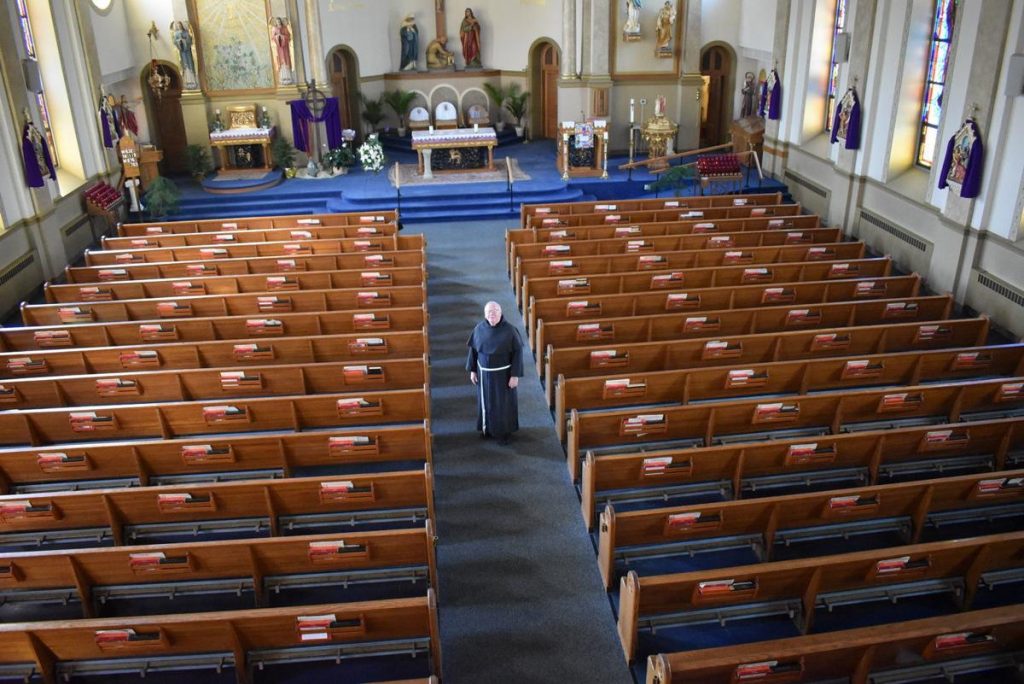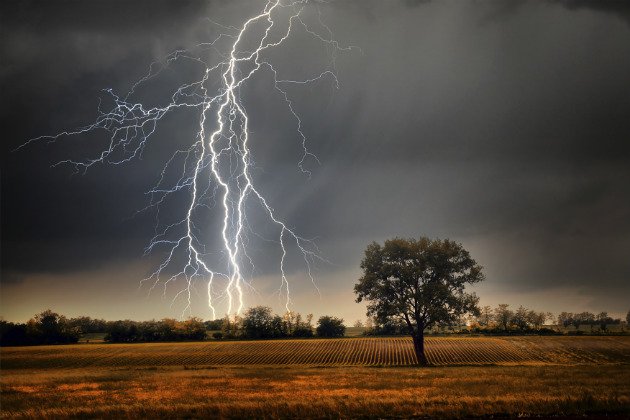Amara Jiskani first heard the voice of God as she stocked shelves in the bread aisle in the late shift at WalMart.
“Amara,” God said to her. “I need to ask something of you.”
At first, Amara thought her friend Jibreel, who also worked the late shift, was joking with her. Jibreel liked to play jokes. Sometimes, at school, he’d do impressions of popular cartoon characters. His impressions always made Amara laugh.
But it wasn’t Jibreel. It was God. God in the bread aisle.
“Am I crazy?” Amara asked?
“No,” God said. “You’re not crazy.”
“Are you sure? My best friend, Sara’s uncle Ted started hearing voices one time and HE got put into a hospital. He’s still there.”
“You’re not crazy,” God said again.
“What do you want?”
“I need you to share my scripture with the people. A modern translation from the dusty, old texts. I need you to create the most beautiful, modern Bible for the world to see.”
“Um,” Amara said. “I’m sixteen years old.”
“I know,” God said.
“I’m stocking bread at WalMart,” Amara said.
“I know,” God said.
“I’m also getting a D in English.”
“Yep.”
“Isn’t there someone else?” Amara asked. “Someone more qualified?”
“There are lots of other people,” God said. “But I chose you.”
Amara thought for a moment.
“Are you sure I’m not going crazy?”
“Almost completely,” God said. Amara paused for a moment, and God spoke again.
“I was joking,” God said. “I am completely sure you are not going crazy.”
That night, Amara went home, and looked at the ancient books in her father’s library. The same ones she had looked at since she was a kid. She loved the leather bindings, the way the pages smelled, and way the letters all looked funny. Like tiny cartoon characters dancing across the page. She had no idea what the letters meant.
Amara frowned.
“I will never accomplish this,” she said. “I think you chose the wrong person, God.”
Amara Jiskani waited patiently for God to speak. But God said nothing.
*** *** *** ***
Ten years later, Amara and her husband Jibreel welcomed a baby boy into their family. Aaron, they called they called him. Aaron laughed and giggled more than any baby they had ever known. That made Amara and Jibreel laugh, too. The family was full of joy and laughter.
One night, after Aaron went to sleep, Jibreel stood in front of Amara. His face was sad.
“We cannot afford your schooling and the baby,” he said. “The margins at the store are thin and sales are down.” Amara and Jibreel owned a small grocery store downtown. Jibreel worked there day and night. Amara was with him as well, when she wasn’t studying comparative religions and ancient languages in school.
Amara kept a stack of Bible translations on the top shelf in her room. Pages and pages of written and rewritten manuscripts. Whenever Jibreel asked about it, she said it was “my special project from God.”
Jibreel did not understand, but what Jibreel understood about women was that somethings you will never understand. He did not press the issue.
“I need you with me,” Jibreel said.
They tried for a while to make it work. Amara cut her course load in half, took on more shifts at the store so they didn’t have to pay anyone. That helped. But raising kids is hard. Sleepless nights and never-ending days pile on top of each other. Eventually, Amara decided to focus on her family and the store.
“I will get back to school once the baby is older,” she told God. “I promise.” The pages on her shelf began to collect dust.
Amara waited a long time for God to speak, but God was silent.
*** *** *** *** *** *** ***
A few years later, Amara and Jibreel had started to make headway. Aaron was in first grade. The economy had turned around. Things were looking up.
Amara would sometimes pull her manuscript off the top shelf and look at the words. Some of them made sense. Most did not. But she could imagine. Once the translation was finished, she would design the pages in ornate calligraphy on thick, artisanal pages, leather-bound with many great illustrations.
Beautiful, just as God had asked.
Amara dreamed of returning to school, of finishing the great work God had asked of her. She shred her hopes with God and waited patiently for him to speak. But God did not speak.
Then, a pandemic came. Hundreds of thousands of people all over the world got sick. People in Amara’s community, her church, some of her friends.
Amara said to her husband, Jibreel, “Let’s take some of the food and medicine from the store to give to the people in the community who need it.” Jibreel was worried, but Amara said God would see them through.
So they did. They took ripe tomatoes, thick loaves of bread, bountiful fruits, and all the medicine they could carry to people all over their community. No one they knew went hungry.
Word got out. People came to their store, begging for help and Amara helped them. Everyone. Always.
When the sickness passed, Amara and Jibreel’s store was empty, as was their bank account.
Amara called out to God. “See? Do you see?! We’re broke now. I will have to work twice as hard to raise our son and pay the bills. Is THIS what you wanted?”
“I was not the right person for this,” Amara said to God.
Amara waited patiently for God to speak, but God was silent.
*** *** *** ***
Several years later, Amara and Jibreel’s son Aaron had gone off to college. He studied Biology. He wanted to be a doctor. He paid his own way by working shifts at the store and doing stand-up comedy at clubs around the city.
“I have been laughing my whole life,” he told his parents. “Might as well make everyone else laugh, too!”
Amara and JIbreel were very proud.
One night, while driving home from a comedy club, Aaron missed a stop sign. Red and blue lights. One cop car turned into three, turned into five. They pulled him out of the car, shouted strong words at him. Aaron was afraid. He laughed nervously.
That was enough. The gunshots rang out. Aaron was dead before he hit the ground.
Amara locked herself in her room and cried out to God in guttural wails. She wept until there were no tears left. Amara tore her manuscript to shreds. She did not wait for God to respond. She did not WANT God to respond.
The dashcam footage made it online. That spark ignited a flame that swept across the city, the country, and most of the world, burning cities, destroying communities, taking many lives.
Weeks later, when Amara and Jibreel returned to their store, it was a hollowed out, burnt shell. Which is just how Amara felt.
The police who killed Aaron were arrested and stood trial. Amara attended each. She wanted to see them face to face. She wanted them to hurt the way she hurt.
Many officers tried to justify their actions. “He went for a gun!” they said. “We feared for our lives!” they said. All lies.
One officer did not. He stood before the court and cameras with his head down. “We were wrong,” he said. “I was wrong. I am so sorry. I beg your firgiveneness.”
Amara stood in the courtroom. She remembered holding her son when he was a baby. She remembered his smile, his laughter. She remembered basketball games, and late night study sessions. She remembered the dreams she had for him, and how quickly and violently those dreams were taken away.
Amara wanted to bring the world down on this man. She wanted, she needed vengeance. But a small voice she had not heard in a long time held her back. Amara closed her eyes, lowered her head, and took a deep breath.
“You are forgiven,” she said.
*** *** *** ***
Many years later, Amara sat up in her bed. Her wrinkled hands wrote the finishing lines on the yellowed and cracking manuscript she had worked on for so long. It’s pages were stained with a lifetime of memories. It was not the kind of thing you would buy in a store.
“Is that for me?” God asked as he sat on the bed next to her.
“You know it is,” Amara said. “But I am ashamed.”
“Why are you ashamed?” God asked.
“You gave me my whole life to write a modern translation to share with the world, and this is all I could do.”
God took the manuscript, thumbed through some of the pages. He laughed in some parts. He cried in others.
“You have done a fine job, Amara. This is a good manuscript.”
God leaned in close and took her hand.
“But your first three translations – your family, your community, and your heart – those are some of the best I have ever seen. Well done, my good and faithful servant.”
Amara smiled. Then she closed her eyes, and fell asleep.










